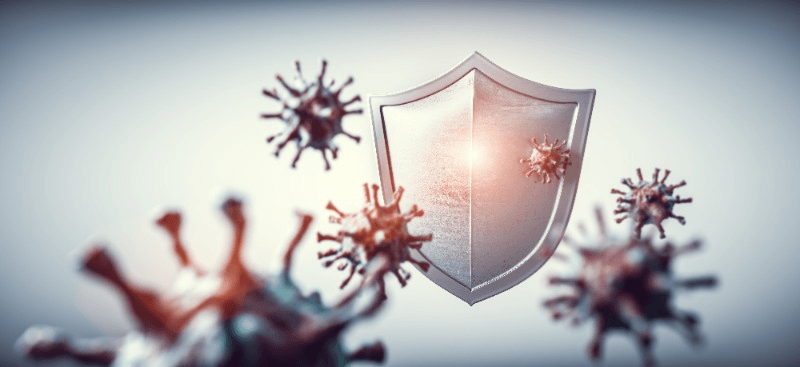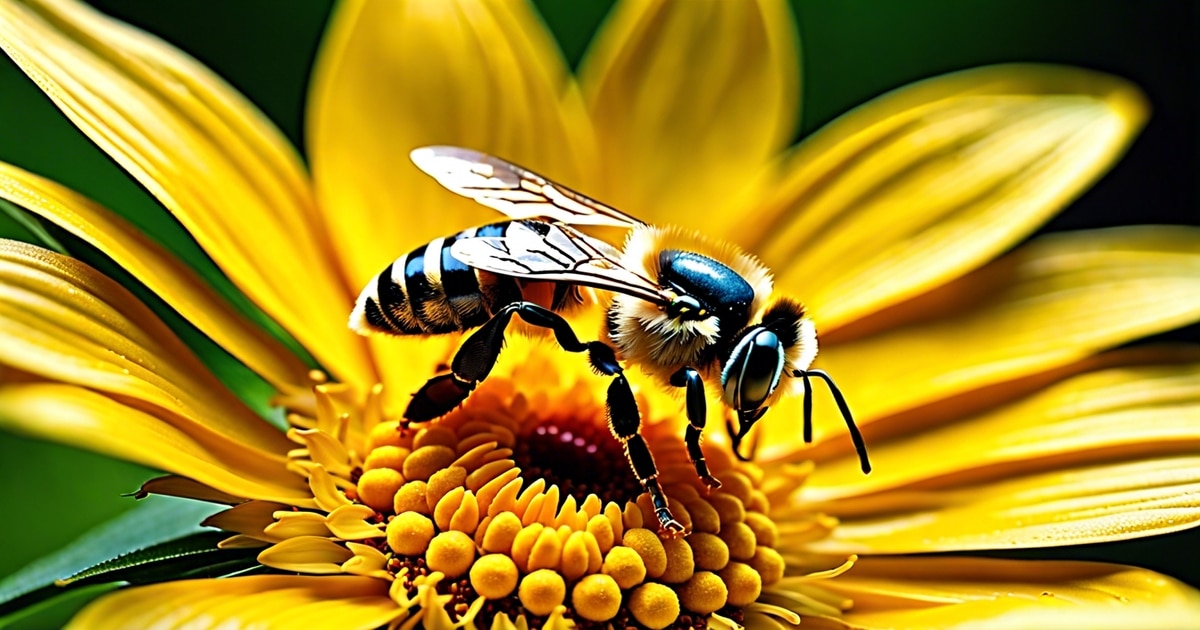Key Takeaways
- If you are taking anticoagulant medications or bee pollen, consult your healthcare provider before using bee pollen to avoid potential interactions affecting your blood’s ability to clot.
- Individuals with bee allergy to immunosuppressants should exercise caution when considering bee pollen consumption, as it may cause an allergic or anaphylactic reaction and interfere with the medication’s effectiveness in suppressing the immune system.
- Be informed about bee pollen interactions!
- Avoid combining bee pollen with monoamine oxidase inhibitors (MAOIs) due to the potential for adverse reactions that can impact overall health.
- If you are undergoing hormone therapies, seeking guidance from a healthcare professional before incorporating bee pollen into your routine is advisable to prevent any interference with the treatment’s efficacy.
- Those with known allergies to pollen or bee products should refrain from using bee pollen to avoid triggering allergic reactions.
- Consult with a healthcare provider before using bee pollen if you are taking antibiotics, as potential interactions may affect the antibiotics’ effectiveness or lead to adverse effects.
- Individuals using antidepressants should seek medical advice before consuming bee pollen to prevent any potential interactions that could impact their mental health and well-being.
- If you are taking blood pressure medications, it is crucial to discuss using bee pollen with your healthcare provider to ensure that no adverse interactions could affect your blood pressure management.
- Exercise caution when combining bee pollen with weight loss agents and diet, and consult with a healthcare professional to avoid any potential interactions that may impact the effectiveness of either substance.
- When using other dietary supplements, including bee pollen and food, it is important to seek guidance from a healthcare provider to prevent any adverse interactions that could affect your overall health and well-being.
- What supplements you shouldn’t take together? Read on and find out!
1. Anticoagulant Medications
Bee pollen may interact with anticoagulant medications like warfarin, increasing the risk of bleeding. This interaction can impact blood clotting and pose serious health risks for individuals on blood thinners. Consulting a healthcare professional before taking bee pollen is crucial, especially if you are already on anticoagulant medications. The dosage and composition of bee pollen could interfere with the effectiveness of these medical conditions. It’s important to note that the potential interactions between bee pollen and anticoagulant medications have not been extensively studied, so caution should be exercised when considering using both concurrently. In some cases, individuals might experience increased bleeding or bruising due to this interaction. Therefore, you must prioritize open communication with your healthcare provider regarding supplements or alternative treatments while taking anticoagulant medications. Understanding these potential interactions can help individuals make informed decisions about their health management when dealing with medical conditions that require blood thinners.2. Immunosuppressants
 Bee pollen, when taken alongside immunosuppressant drugs commonly used post-organ transplants, may impede the efficacy of the medications. This interference could compromise the body’s ability to control immune responses effectively. It is crucial for individuals prescribed immunosuppressants to consult their healthcare provider before incorporating bee pollen into their regimen.
In a study conducted by Pharmacognosy Research et al, it was found that bee pollen possesses inflammatory properties capable of modulating immune system function. Combined with immunosuppressants, this interaction might disrupt the delicate balance required for managing post-transplant immune response.
Furthermore, patients on immunosuppressant medication should be aware that limited data exist regarding safe and effective doses of bee pollen in conjunction with these drugs. As such, it becomes even more critical for individuals to seek professional medical advice before considering its use.
It is vital to consult a doctor or healthcare professional before introducing bee pollen while taking immunosuppressants due to potential adverse effects on immunity control.
Bee pollen, when taken alongside immunosuppressant drugs commonly used post-organ transplants, may impede the efficacy of the medications. This interference could compromise the body’s ability to control immune responses effectively. It is crucial for individuals prescribed immunosuppressants to consult their healthcare provider before incorporating bee pollen into their regimen.
In a study conducted by Pharmacognosy Research et al, it was found that bee pollen possesses inflammatory properties capable of modulating immune system function. Combined with immunosuppressants, this interaction might disrupt the delicate balance required for managing post-transplant immune response.
Furthermore, patients on immunosuppressant medication should be aware that limited data exist regarding safe and effective doses of bee pollen in conjunction with these drugs. As such, it becomes even more critical for individuals to seek professional medical advice before considering its use.
It is vital to consult a doctor or healthcare professional before introducing bee pollen while taking immunosuppressants due to potential adverse effects on immunity control.
3. Monoamine Oxidase Inhibitors (MAOIs)
When bee pollen is combined with MAOIs, adverse effects on food may occur. This interaction can lead to increased blood pressure or other serious side effects. A small study has suggested that bee pollen’s phenolic compounds and amino acids could interact with MAOIs, causing these adverse reactions. Individuals undergoing treatment with MAOIs should exercise caution when considering using bee pollen without medical advice due to the potential risks associated with this combination. Bee pollen’s chemical composition contains various compounds that can potentially interfere with the metabolism of medications like MAOIs. In a clinical context, healthcare providers must be aware of any supplements their patients take, including bee pollen, especially if they are being treated with MAOIs. Understanding these interactions within the group is essential in preventing possible complications such as liver problems or exacerbation of metabolic syndrome disorders. Given this information, individuals on MAOI therapy must consult their healthcare provider before using bee pollen or any other supplement containing similar components. This precautionary approach ensures that potential interactions and adverse effects can be managed or avoided altogether.4. Hormone Therapies
Bee pollen has the potential to interact with hormone therapies, possibly impacting their effectiveness and causing hormonal imbalances. Therefore, individuals undergoing hormone therapy need to discuss the use of bee pollen with their healthcare provider. This is crucial, as combining bee pollen and hormone therapies may lead to unpredictable outcomes. Research on this specific interaction is limited, but considering the possible implications due to the complex nature of bee pollen and hormone therapies is essential. While no direct clinical trials or human studies address this interaction, it’s important to note that natural products like bee pollen can influence ovarian functions based on animal and tube study findings. For instance, in animal studies, certain components found in bee pollen have shown potential effects on reproductive hormones and ovarian function. Although these results cannot be directly translated into human experiences without further investigation, they emphasize caution when combining bee pollen with hormone therapies.5. Allergy to Pollen or Bee Products
People allergic to pollen or bee products may experience allergic reactions when consuming bee pollen. This can manifest as itching, swelling, hives, and even anaphylactic shock. It’s essential for individuals with known allergies to pollen or bee products to avoid bee pollen consumption. The risk of severe allergic reactions is significant, especially in those who have a history of anaphylactic reactions. Allergic reactions to bee pollen in individuals sensitive to these substances can be severe and life-threatening. In some cases, the reaction might require immediate medical attention. Therefore, people with known allergies must heed caution and refrain from consuming any form of bee products without consulting a healthcare professional.6. Antibiotics
Bee pollen, known for its antimicrobial properties, may interact with antibiotics, potentially impacting their effectiveness against harmful bacteria. When used together, bee pollen and antibiotics could influence the body’s response to medication. Individuals undergoing antibiotic treatment should seek medical advice before incorporating bee pollen into their regimen. Consulting a healthcare professional can help assess potential interactions and ensure that antibiotic therapy remains effective in combating infections. Combining bee pollen and antibiotics has been shown to affect various health factors, such as wound healing and microbial balance within the body. Research on rats suggests that when administered alongside traditional medicine, bee pollen can enhance wound healing due to its protein content and ability to reduce inflammation.7. Antidepressants
 Combining bee pollen with antidepressants could result in adverse reactions or reduced efficacy of the antidepressant medication. Studies have shown that certain substances in bee pollen may interfere with the metabolic pathways of antidepressants, potentially leading to unexpected side effects.
Individuals taking antidepressants should seek medical advice before incorporating bee pollen into their regimen. This precaution is crucial as interactions between bee pollen and antidepressants can vary depending on the specific components of both substances and individual health conditions.
The interaction between bee pollen and antidepressants may affect neurotransmitter levels in the brain. This interference could lead to an imbalance in serotonin, dopamine, or other essential neurotransmitters targeted by antidepressant medications, potentially resulting in dysfunction if not carefully monitored.
Seeking guidance from a healthcare professional is imperative for individuals considering adding bee pollen to their routine while taking antidepressants. Healthcare providers can offer personalized advice based on an individual’s unique health profile, ensuring the safe and effective use of both treatments.
Combining bee pollen with antidepressants could result in adverse reactions or reduced efficacy of the antidepressant medication. Studies have shown that certain substances in bee pollen may interfere with the metabolic pathways of antidepressants, potentially leading to unexpected side effects.
Individuals taking antidepressants should seek medical advice before incorporating bee pollen into their regimen. This precaution is crucial as interactions between bee pollen and antidepressants can vary depending on the specific components of both substances and individual health conditions.
The interaction between bee pollen and antidepressants may affect neurotransmitter levels in the brain. This interference could lead to an imbalance in serotonin, dopamine, or other essential neurotransmitters targeted by antidepressant medications, potentially resulting in dysfunction if not carefully monitored.
Seeking guidance from a healthcare professional is imperative for individuals considering adding bee pollen to their routine while taking antidepressants. Healthcare providers can offer personalized advice based on an individual’s unique health profile, ensuring the safe and effective use of both treatments.
8. Blood Pressure Medications
Bee pollen has the potential to interact with blood pressure medications, causing fluctuations in blood pressure levels. This interaction can impact cardiovascular health and should be carefully monitored by healthcare providers. Individuals taking blood pressure medications must seek professional advice before incorporating bee pollen into their routine. Individuals managing heart disease or high cholesterol levels through medication must recognize that bee pollen may affect the efficacy of these drugs. Combining bee pollen and blood pressure medications could lead to unpredictable outcomes, potentially compromising the management of these conditions. A study published in “Pharmacognosy Review” found that certain natural products, including bee pollen, have been reported to interfere with antihypertensive drugs. This underscores the importance of consulting healthcare professionals when considering using bee pollen alongside prescribed medications for heart-related issues. Moreover, individuals concerned about their blood glucose levels should also exercise caution when using bee pollen alongside their medication regimen. Bee pollen’s potential impact on blood sugar regulation may necessitate adjustments in diabetes management plans for those already taking medication to control their glucose levels. Therefore, due diligence is essential for anyone on a prescribed medication regimen for heart-related conditions or other health concerns before integrating bee pollen into their daily wellness practices.9. Weight Loss Agents
When used together, bee pollen and weight loss agents may have unpredictable effects on metabolism and overall health. Bee pollen is rich in fatty acids, essential for the body’s functions; however, combining it with weight loss agents could lead to adverse side effects. Individuals considering combining bee pollen with weight loss agents should seek guidance from a healthcare professional. This is crucial as certain weight loss agents can alter metabolic processes and affect nutrient absorption, potentially interacting with the components of bee pollen. The interaction between bee pollen and weight loss agents could impact weight management goals. While some people might be looking to shed body mass or burn fat through these combinations, there is a risk of experiencing unexpected outcomes due to the complex interplay between different substances. It’s important to note that while some research suggests potential benefits of using bee pollen for athletic performance or reducing body fat percentage, its combination with specific weight loss agents may not align with everyone’s unique physiological makeup. Seeking advice from a healthcare provider will help ensure safe usage without compromising well-being.10. Other Dietary Supplements
Combining bee pollen with other dietary supplements may lead to interactions that affect nutrient absorption or metabolism. For example, taking bee pollen alongside certain vitamins or natural products could alter how the body processes these substances. It’s advisable to consult a healthcare provider before using multiple dietary supplements alongside bee pollen. This is especially crucial for individuals who are on specific medications or have pre-existing health conditions, as interactions between various supplements and medications can have adverse effects. The simultaneous use of various dietary supplements, including bee pollen, requires careful consideration due to potential interactions. While some combinations may be safe and even beneficial, others could pose risks to overall health and well-being. Therefore, seeking professional guidance before incorporating multiple supplements into one’s diet is essential for ensuring safety and effectiveness.Frequently Asked Questions
Can bee pollen interact with anticoagulant medications?
Bee pollen may enhance the effects of anticoagulant medications, increasing the risk of bleeding. If you’re taking anticoagulants, consult a healthcare professional before consuming bee pollen.Are there potential interactions between bee pollen and immunosuppressants?
Yes, bee pollen might interfere with the effectiveness of immunosuppressants. If you are on immunosuppressive medication, seeking advice from a healthcare provider before using bee pollen is crucial.What is the interaction between monoamine oxidase inhibitors (MAOIs) and bee pollen?
Consuming bee pollen while on MAOIs can lead to hypertensive crisis or serotonin syndrome. It’s imperative for individuals taking MAOIs to avoid using products containing bee pollen.What Are the Potential Health Benefits of Bee Pollen and How Does It Interact with Other Substances?
When it comes to harnessing bee pollen uses, the potential health benefits are numerous. Bee pollen is rich in vitamins, minerals, antioxidants, and protein, making it a powerful superfood. It may help with allergies, inflammation, and liver health. However, it’s important to be cautious when combining bee pollen with other substances, as it may interact with certain medications or cause allergic reactions in some individuals.

